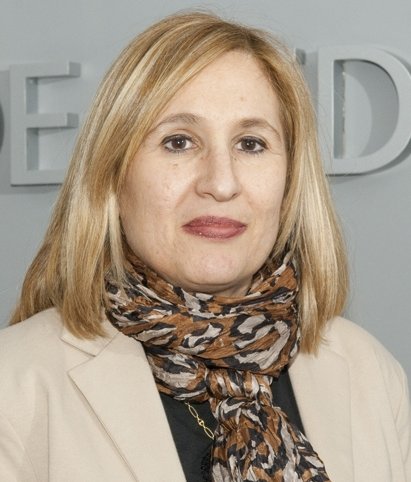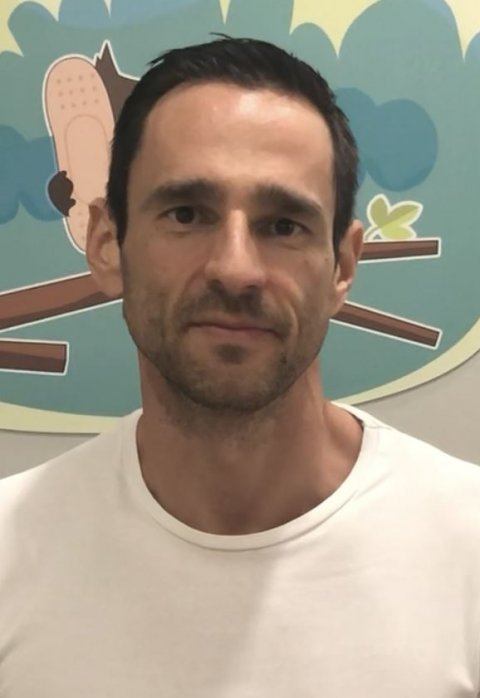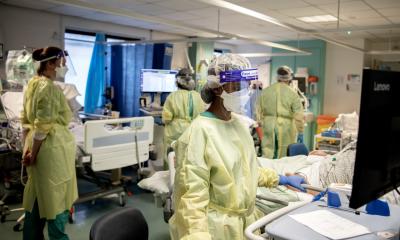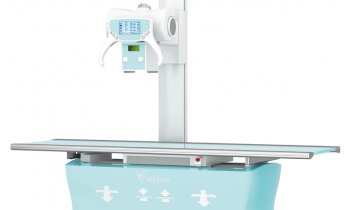Image source: Unsplash/Johnny Cohen
Article • Paediatric health risks
Children in the COVID-19 pandemic: Between fear and care
The COVID-19 pandemic has affected children with direct impacts of the infection as well as on them leading normal lives. Schooling, play and vaccinations are among issues that can affect children’s health. Delay in taking paediatric patients to the emergency room (ER) has also had a negative impact, for example late treatment of acute appendicitis.
Report: Mélisande Rouger
Two experts from Spain tackled these topics in a recent webinar organised by the European Academy of Paediatrics (EAP), which offers weekly insights into the pandemic through the eyes of children.

Researchers from La Paz, one of Madrid’s main hospitals, observed, in an epidemiological study that infection rates in children occurred with delay of one or two weeks over adults and despite confinement and closure of schools. ‘This could support the idea that they have been infected at home by adults,’ observed paediatrician Cristina Calvo.
Up to 30th April, almost 1,000 children had been diagnosed with COVID-19, with 30% of them hospitalised. 12% of these patients needed admission in intensive care units (ICU) and 0.2% died. ‘Children represent less than 1% of diagnosed patients,’ Calvo said. ‘This may be partly because diagnostic tests have only been performed in children with admission criteria or previous illnesses.’
Madrid hospitals were re-organised to accommodate patients in dedicated COVID-19 wards, and paediatric emergencies and wards for COVID-19 were moved to adult hospitals. The remaining paediatric care, which is traditionally available at 23 hospitals, was reduced (confined) to only two, La Paz and Niño Jesus hospitals. By mid-April, 2,604 patients, of whom 66 (2.4%) were children, had been admitted in La Paz Hospital. ‘In the emergency room, patients are evaluated in triage. If there is a suspicion of COVID, we place a mask on both the child and parents, and they are treated in different circuits in different rooms, by different groups and with minimal manipulation,’ Calvo explained. ‘When an X-ray examination is necessary, it’s performed in the ER with a mobile X-ray. Patients are then moved into the COVID area, where they wait until the result of their PCR test. When PCR is confirmed, children share a room whenever necessary.’
In cases with high clinical suspicion and negative PCR, children are placed in the COVID area and treated with the same protection measures as children who tested positive.
A long list of COVID-19 collateral damages
There is no doubt: these problems were caused by the delay
Cristina Calvo Rey
Parents feared bring children to the hospital. ER cases dropped dramatically, Calvo said. ‘Even in just two hospitals the daily number of paediatric patients went from 150 to just 40 or 50.’ Resulting delay in ER admission had a negative impact on children’s health. Paediatricians noticed an increase in severe diabetic ketoacidosis (DKA) needing admission and an increase in the rate of complicated appendicitis from 15.85% to 48.4% of total appendicitis. ‘There is no doubt: these problems were caused by the delay,’ she insisted.
Other collateral damages also arose, notably on vaccination. Health authorities advised that vaccines couldn’t be delayed, yet paediatricians reported delay in routine vaccination of infants under 15 months, pregnant women in their 27th and 28th week 28 (for whooping cough) and populations at high risk, such as transplant patients. Last but not least, children who were locked down children added extra kilos. ‘They now need more exercise to be fit,’ Calvo added.

Dr Antonio J. Conejo, paediatrician at a private institution, the Vithas Xanit International Hospital in Malaga, Andalucía, also reported collateral damages: ‘We’ve seen a dramatic fall in ER admissions. Attendance to the paediatric ER dropped from 120 – 140 to 6 or even four or three patients a day.’ Complicated appendicitis and peritonitis cases also increased due to delayed ER admission.
Paediatricians’ activity dropped as a result, but pandemic organisation changed that. ‘Some of us have been helping in COVID-19 wards, not just for children, but also, and mainly for, adults. I hadn’t cared for adults in 15 years, and this was quite challenging under the circumstances,’ Conejo said.
Conejo’s hospital created a specialists’ task force, to ensure every decision includes all clinicians involved.
Re-opening schools: balancing fear and data
Spain’s de-escalation plan is divided into four phases of at least two weeks each, if everything goes well. Before taking the next phase, every region must be evaluated following several parameters, such as the number of ICU beds and mechanical ventilators available or occupancy of main hospitals in every area.
Re-opening schools is part of the Phase 2 plan. In Andalusia, currently in Phase 1 in most areas, schools will only open for the end of cycle courses in primary education and college, with voluntary attendance and limited quorum of people – probably 50% of school capacity. Day care centres will open for working parents, although this doesn’t include those who can telework or many who cannot return to work yet due to lockdown. Conejo observed that, for parents, a two-month lockdown was complicated and challenging ‘to conciliate professional and personal life’.
If we encourage online and new technology activities, it may increase the gap between different socio-economic levels. Some people do not have access to a computer or the Internet
Antonio J Conejo
Many children cannot attend schools before September and schools will only re-open if if following several conditions. The Spanish Association of Paediatrics has worked on recommendations to consider, once schools re-open, including social distancing, hand hygiene, limiting quorum, promoting online education, etc., already available in its website. These recommendations reflect the balance fear and care, in the light of new data that indicates children are not the initially thought super virus carriers, Conejo explained. ‘Social distancing and limiting student numbers at the same time, same place, sounds logical. But we have to face data, which tells us that children have probably suffered early assumptions that they are dangerous. Initially, we thought that coronavirus would be the same as flu and other infections, in which children are the main reservoir. But in COVID, it doesn’t seem like that,’ Conejo said.
Several articles have been published where researchers summarised evidence of children reservoirs and the role of children as spreaders. Results show that children are not super virus carriers. Social distancing measures will undoubtedly trigger costs in school infrastructure and on society. ‘Most centres will probably have problems to keep these distances. If we encourage online and new technology activities, it may increase the gap between different socio-economic levels. Some people do not have access to a computer or the Internet,’ he pointed out.
Spain has suffered a teacher shortage –likely to grow in the post-COVID era. ‘Most teachers are close to retirement. Worries about keeping safe during the epidemic probably means they will retire earlier.’ A teacher shortage will follow, due to an insufficient young workforce.
Other dangerous diseases at school
‘We know that meningococcal infection is devastating and most patients who get infected in childhood do so at school,’ Conejo pointed out. ‘So why are we going to do this with coronavirus and not other viruses? If we know infections in children are rare and we think that children are not a common reservoir, why should we treat COVID differently from other viruses?’
Balancing fear and data is more complex than originally thought – evidence about COVID-19 is only just emerging. ‘As we are writing this disease in real time, we are not very sure of what’s going to happen. But it’s our role to take the best measures to care for our children and our society,’ he concluded.
The EAP offers a dedicated COVID-19 Resource Centre for everyone to use across the EU.
Profiles:
Paediatrician Cristina Calvo Rey graduated with distinction from Madrid Autonomous University with distinction and did her first residency in paediatrics at La Paz Hospital. She was head of the paediatrics department at Severo Ochoa Hospital in Madrid from 2006 to 2015, and today heads the Paediatrics, Infectious and Tropical Diseases Department at La Paz Children's Hospital in Madrid, Spain. Her clinical work and research on infectious diseases and viral infections in children is extensive. She is part of a major research group between Severo Ochoa Hospital, La Paz Hospital and the Spanish National Microbiology Centre for the study of respiratory, systemic and neurological viral infections in children, input from many researchers across the country.
Paediatrician Antonio J Conejo coordinates the paediatrics department at Hospital Vithas Xanit Internacional in Benalmádena, Málaga, Spain.
09.07.2020











